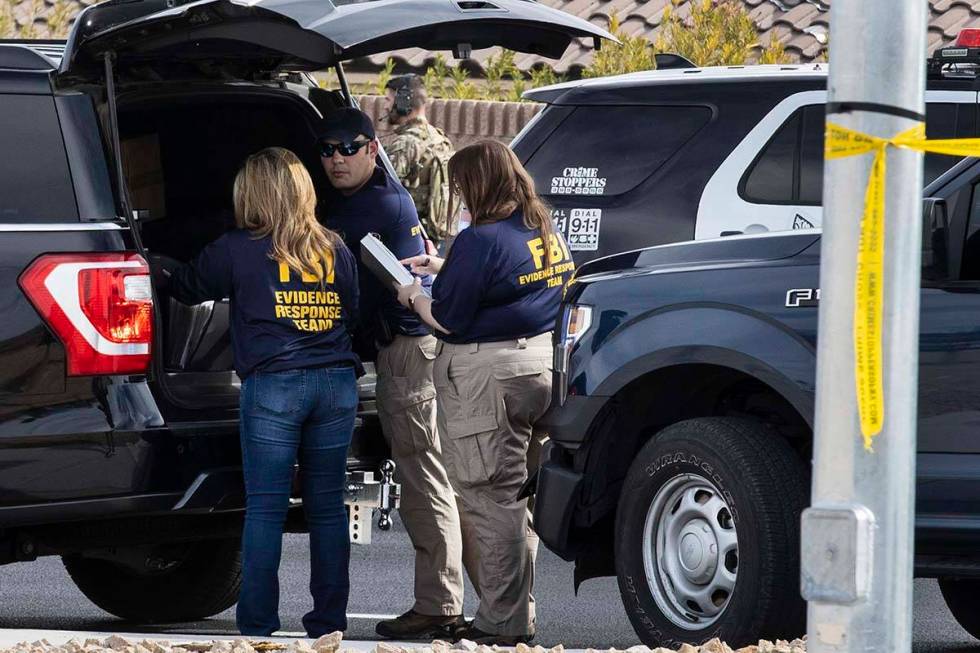Lawsuit: Wells Fargo should have known about Las Vegas Ponzi scheme

A court-appointed receivership in charge of untangling a massive, multimillion-dollar Ponzi scheme authorities said was orchestrated by a Las Vegas attorney has filed a lawsuit against Wells Fargo, accusing the bank of helping to facilitate the scheme.
Attorney Matthew Beasley, 50, is facing federal charges of wire fraud and money laundering in connection with the alleged scheme, which began in 2017. The scheme, which is believed to have targeted more than 1,000 victims, was pitched as an investment to earn annual returns of 50 percent by lending money to slip-and-fall victims awaiting checks after lawsuit settlements, prosecutors have said.
An investigation by The Washington Post, in partnership with the Las Vegas Review-Journal, found that Beasley and his business partner Jeffrey Judd targeted members of The Church of Jesus Christ of Latter-day Saints.
Prosecutors have said the scheme took more than $460 million from investors, but the lawsuit filed Thursday against Wells Fargo indicated that about $500 million could have flowed through Beasley’s accounts.
A federal judge has appointed a receiver, Geoff Winkler, to take stock of assets and bank accounts related to the scheme, and the receiver has secured more than $80 million in assets so far, according to the lawsuit.
Beasley is accused of operating the scheme through an Interest on Lawyers Trust Account, also known as an “IOLTA” account, which is meant for attorneys to hold onto client funds.
“From a bank’s perspective, the fraudulent scheme was obvious,” according to the lawsuit. “A Ponzi scheme of this magnitude cannot run surreptitiously through an IOLTA and various related-party accounts.”
Attorneys for Wells Fargo did not immediately respond to request for comment.
The lawsuit also alleged that bank employees noted suspicious activity surrounding Beasley’s account. In one instance, a manager at a Wells Fargo branch in Henderson reported suspicious transactions to a “corporate group within Wells Fargo.”
“In each of the multiple instances, however, Wells Fargo responded to the reports by directing the branch employees to execute the suspicious transactions,” according to the lawsuit.
Wells Fargo should have noticed Beasley was not using the account as an attorney normally does, according to the lawsuit. The bank frequently accepted deposits into the account from branches outside of Nevada, with deposits most frequently made in Salt Lake City.
The complaint alleged that Beasley’s misappropriation of funds would have been noticed earlier if not for the bank’s “active assistance.” The bank is also accused of benefiting from allowing Beasley to operate the account, by earning money through interest fees associated with millions of dollars in deposits.
Beasley has been accused of using the Ponzi scheme to fund a lavish lifestyle for him and his family. Thursday’s lawsuit also alleges that Beasley started the scheme to pay off gambling debts, and that he withdrew millions of dollars in cash from his account while operating the scheme.
In March 2022, investors filed a federal lawsuit naming Beasley and Wells Fargo as a defendant, also claiming that the bank should have known Beasley’s account was not being used for its intended purpose.
The Ponzi scheme was unveiled last year when FBI agents went to raid Beasley’s Las Vegas home, resulting in a confrontation with Beasley that ended in an armed standoff. Prosecutors have said Beasley knew agents were coming to his house, and he came to the door holding a gun to his head.
He then pointed a gun at agents, who shot him in the chest and shoulder, prosecutors said. Beasley refused to leave his home for nearly four hours after being shot. Prosecutors said he confessed to the Ponzi scheme to FBI negotiators during the standoff, and in a letter addressed to the FBI.
Last week, a federal judge ordered Beasley to be held in custody until he can stand trial in the money laundering case.
During the court hearing, prosecutors filed a declaration from the receiver stating that $7 million to $10 million in the funds that Beasley received from the alleged scheme were unaccounted for, along with about $300,000 in cash that Beasley has reported he stored at his home.
The receiver has also established a website at jjconsulting-receivership.com for investors to contact the receivership if they believe they were a victim of the Ponzi scheme.
Contact Katelyn Newberg at knewberg@reviewjournal.com or 702-383-0240. Follow @k_newberg on Twitter.